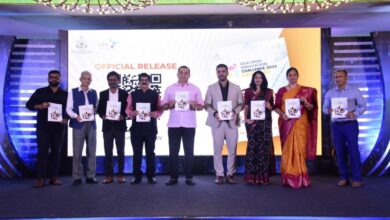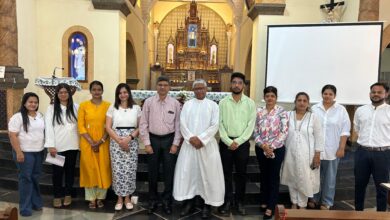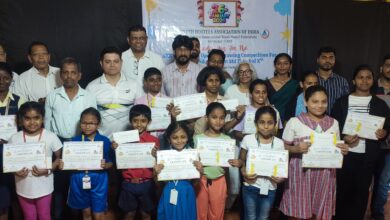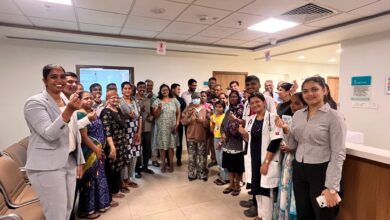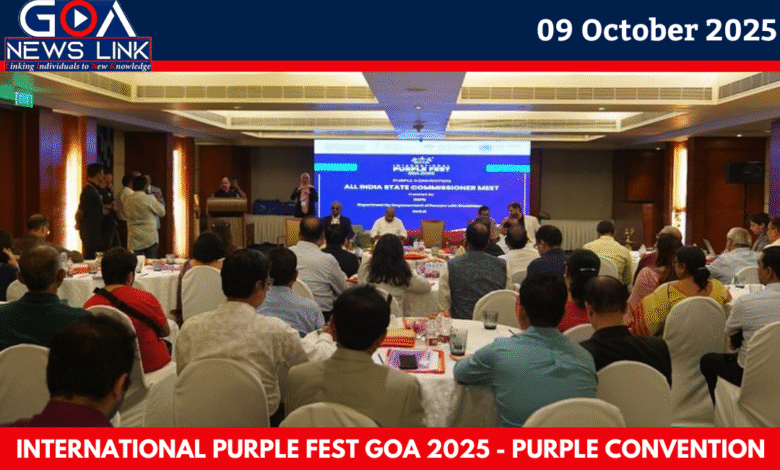
All India State Commissioners Meet 2025 Focuses on Strengthening Inclusive Governance
Focus on digital accessibility, legal enforcement, and child rights sets a new national benchmark for disability inclusion
Panaji, 9 October 2025: On the opening day of International Purple Fest 2025, The All India State Commissioners’ Meet 2025 was convened under the leadership of the Office of the Chief Commissioner for Persons with Disabilities (CCPD), Department of Empowerment of Persons with Disabilities (Divyangjan), Ministry of Social Justice and Empowerment, Government of India, bringing together State Commissioners from across India to strengthen national coordination, address statutory responsibilities, and reinforce the mandate of the Rights of Persons with Disabilities (RPwD) Act, 2016. The theme of this year’s meet was ‘Strengthening Inclusive Frameworks through Collaborative Governance and Rights-based Mechanisms.’
The inaugural session witnessed the presence of Minister for Social Welfare, Goa, Shri. Subhash Phal Desai, Union Minister for Social Justice and Empowerment Dr. Virendra Kumar, IAS Secretary, Department of Empowerment of PwDs (Divyangjan) Rajesh Aggarwal, and Chief Commissioner for Persons with Disabilities, Dr. S. Govindaraj, who welcomed the dignitaries, commissioners from states across the country and delegates.
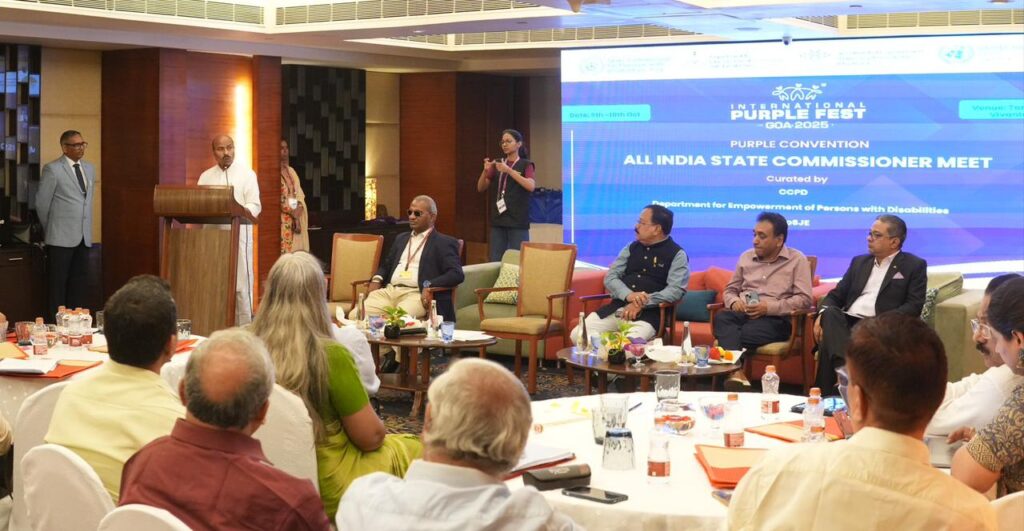
Minister for Social Welfare, Shri. Subhash Phal Desai, emphasised that inclusion is not merely an act of charity, but a movement of empowerment, justice, and smart governance. He highlighted that persons with disabilities are not just beneficiaries but equal partners in society as professionals, entrepreneurs, and contributors who play a vital role in nation-building. “Our policies must translate into action, ensuring dignity, independence, and recognition for every Divyangjan,” he said, stressing the importance of accessibility, participation, and opportunity.”
Union Minister for Social Justice and Empowerment Dr. Virendra Kumar addressing the gathering highlighted proactive work that needs to be carried out: “Our aim is not just to make laws, but to ensure that persons with disabilities receive justice and equal opportunities. Persons with Disabilities should have respect, security and independence, so that their participation in society is empowered and meaningful.”
Chief Commissioner for Persons with Disabilities, Dr. S. Govindaraj highlighted that the event is a platform to contemplate, consult, and consider turning thoughtful dialogue into practical action for the empowerment and inclusion of persons with disabilities. “By bringing together government officials, state commissioners, NGOs, and media representatives, the onus is on all of us to create meaningful opportunities, strengthen systems, and ensure that there are outcomes that ensure tangible benefits for Divyangjans across the country.”
Across sessions, participants discussed key themes shaping India’s disability inclusion agenda: from improving the Sugamya App and outcomes under the Sugamya Bharat Abhiyan, to strengthening legal enforcement mechanisms and building stronger inter-departmental coordination among disability commissions, education boards, and child protection agencies. The discussions emphasised faster grievance resolution, legal literacy, inclusive education, and the importance of data-driven policy frameworks to improve accessibility and service delivery.
The final thematic session advocated for data-driven policymaking, the need for standardised data collection, Census integration, and uniform indicators to track accessibility, education, livelihood, and infrastructure outcomes.
Panelists across sessions included officials from the CCPD’s Digital Governance, Legal Affairs, and Data Divisions, alongside legal experts, education specialists, and State Commissioners from Maharashtra, Karnataka, Delhi, Tamil Nadu, Uttar Pradesh, Gujarat, Kerala, Rajasthan, Assam, Goa, West Bengal, and Telangana.
The meet set a national roadmap for inclusive governance, emphasizing digital accessibility, legal enforcement, child rights protection, and evidence-based policymaking to transforme disability inclusion from policy into practice.



